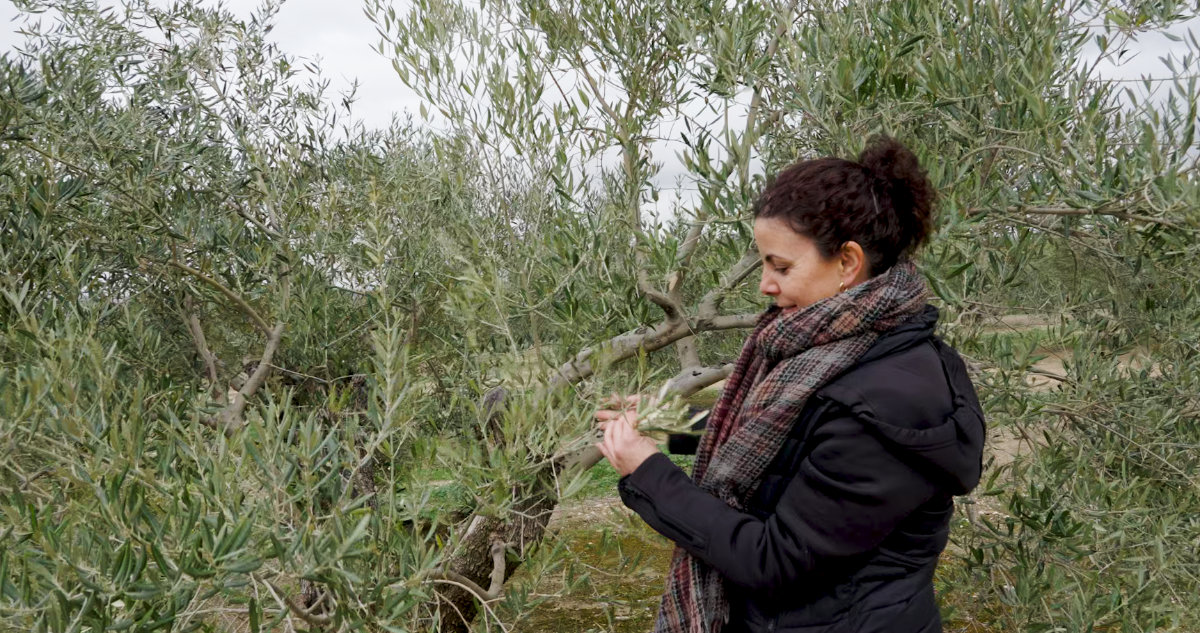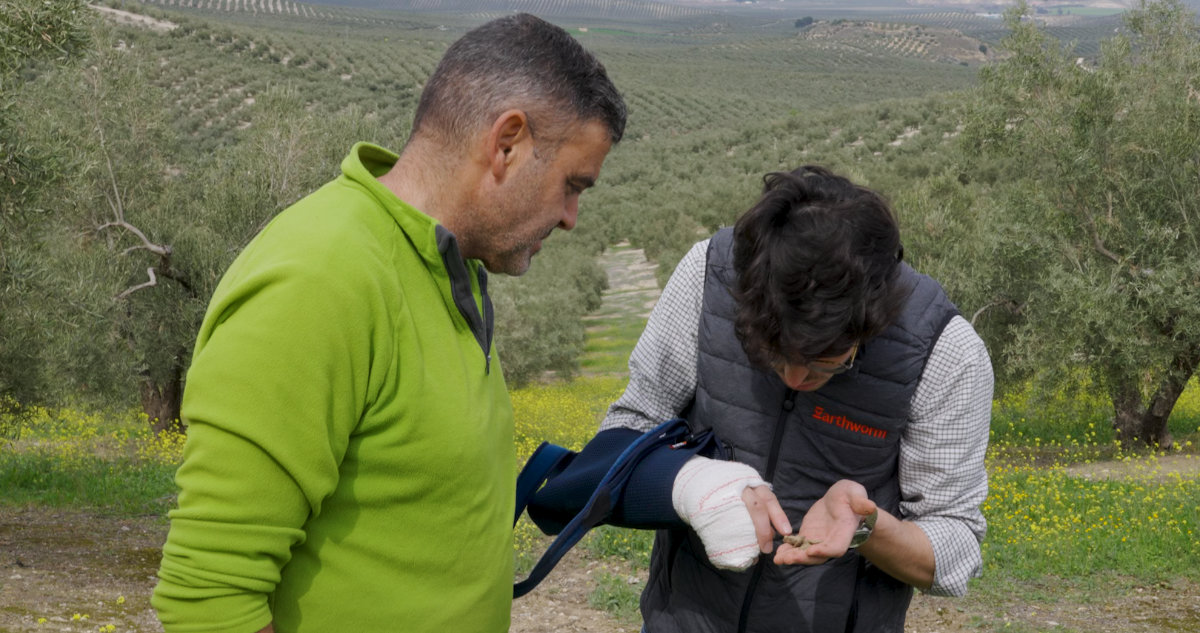Silvery green olive leaves blanket the rolling hills and valleys of Jaén, Spain, a Southern province renowned as the world’s largest olive oil producing region. For two decades, Loli Vincent López has tended to her grove of 2,000 trees. Loli, along with dozens of other farmers, serve as the economic backbone of the community. “Everyone in town lives and depends on the olive oil business,” Loli says.
The olive oil produced in Jaén, is a key ingredient in Alvalle Gazpacho, PepsiCo’s popular chilled soup. “Alvalle is using our olive oil, that we make with such care and love. It makes us feel appreciated and is a source of pride,” she says.
We have to help and give back what we’ve taken from nature and VivaOliva is making that conscious move.
— Maria del Mar Trojan
Loli is one of 150 small olive farmers in Jaén taking part in the PepsiCo Foundation’s VivaOliva initiative. The program offers training and support from agronomy experts. The ambition is to help farmers incorporate more regenerative practices that can improve their land, conserve vital resources, produce higher-quality olive oil and increase their incomes.
One of the benefits of VivaOliva that attracts Loli is the potential to inspire future farmers to join the olive oil business. Her father was also an olive farmer, making this mission deeply personal. “I want my daughter to be proud that what her grandfather has built is maintained,” Loli says.
 Maria del Mar Trojan checking her olive trees in Jaén, Spain.
Maria del Mar Trojan checking her olive trees in Jaén, Spain.
Building on family legacy also brought Maria del Mar Trojan to the business. She has cherished memories of riding with her father in his tractor through the olive groves as a child. “Farming is special because of the love I have for it,” Maria says. “It’s a part of my family.”
Maria is hoping the support and resources from VivaOliva will help her farm and business thrive for years to come. “We’re on the right track of making people aware of regenerative agriculture,” Maria says. “We have to help and give back what we’ve taken from nature and VivaOliva is making that conscious move.”

Agapito Vega Adán examining olives from his farm with a colleague.
Agapito Vega Adán, an olive farmer in Jaén with over 30 years of experience, sees the value of these sustainable practices, from the ground up. “In terms of soil fertility — without it, we have no trees, and without trees, there’s no production,” he says.
But it’s not just the soil he’s thinking about. Agapito has seen fewer and fewer people entering the profession, and he’s concerned about the future of olive farming. He hopes the VivaOliva program will inspire the next generation. “Fewer people are dedicating themselves to agriculture,” Agapito says. “I have a lot of passion for farming, and I feel proud to be able to produce olive oil for Alvalle. With this partnership, we can make generational change.”